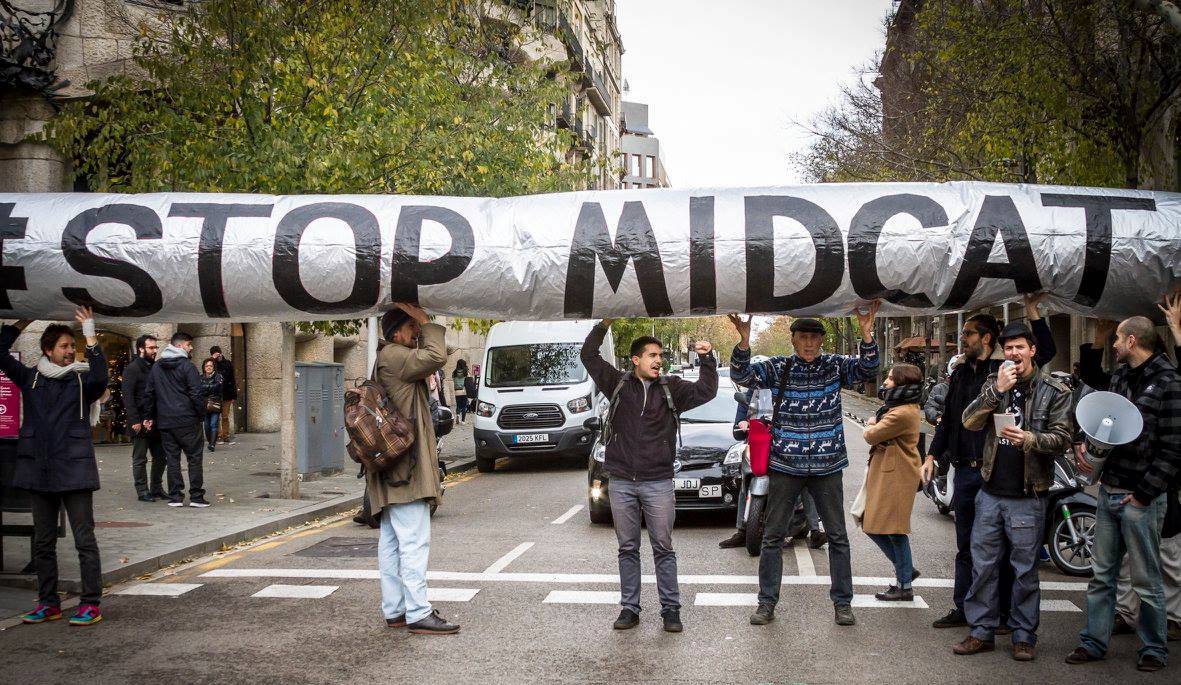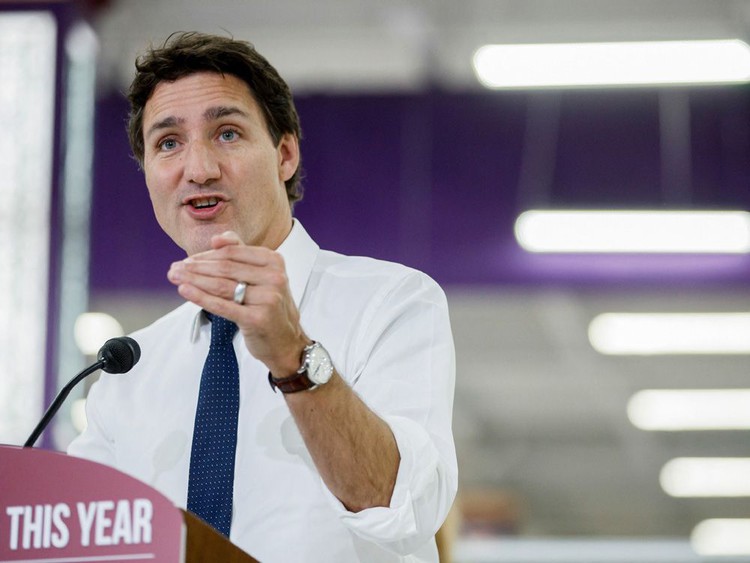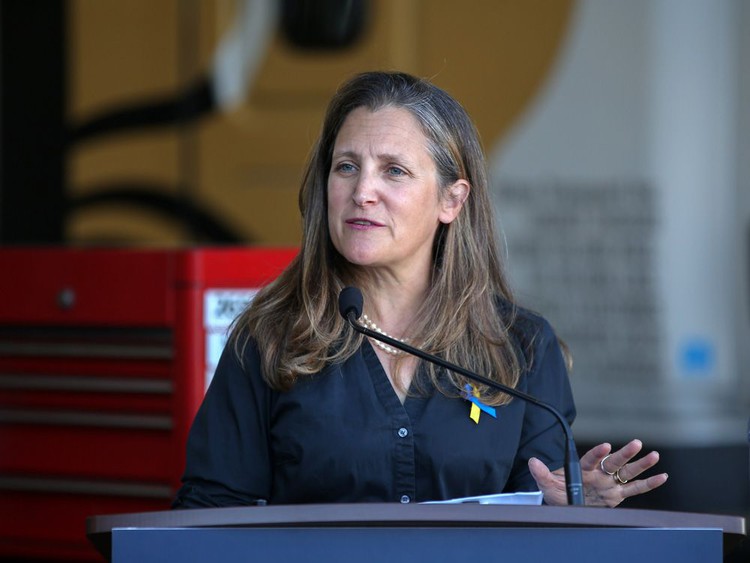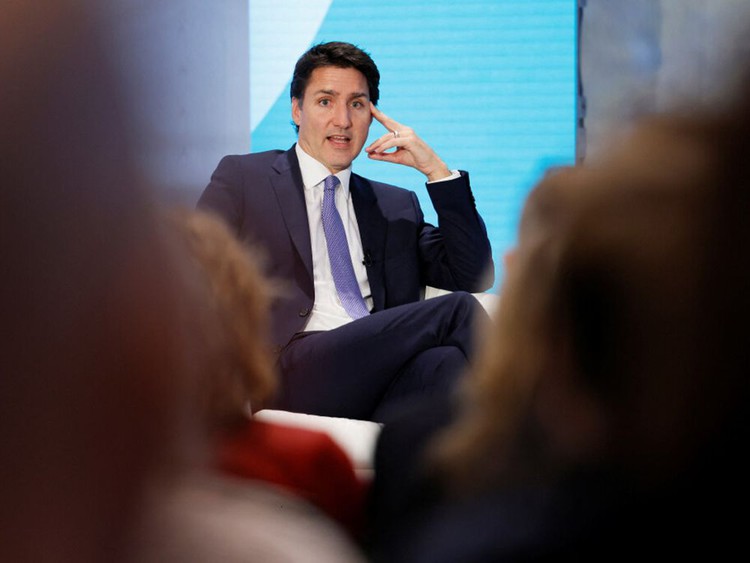Trudeau Makes Good on Ethical Energy to Germany
- Thread starter mentalfloss
- Start date
You are using an out of date browser. It may not display this or other websites correctly.
You should upgrade or use an alternative browser.
You should upgrade or use an alternative browser.
As one of the owners of Trudeau's residence, I demand the thermstat be permanently set at 10°C from October to April.
A true leader and champion of the planet wouldnt have an issue with it at all.
A true leader and champion of the planet wouldnt have an issue with it at all.
30c in from May to September.As one of the owners of Trudeau's residence, I demand the thermstat be permanently set at 10°C from October to April.
A true leader and champion of the planet wouldnt have an issue with it at all.
I bet the clowns in favour of a fossil fuel free Europe jet off to somewhere warm for the winter.When will environmentalists stand up and carry the liabilities of their stupidity?
A victory??? Will EU have any environmentalists come spring?
Climate incompatible France-Spain gas pipeline cancelled
22/01/2019
Climate justice & energy Fossil fuels
Red card to EU-backed ‘MidCat’ is major victory for campaigners
In a victory for the movement for a fossil free Europe, a climate-damaging gas pipeline project between France and Catalonia has today been blocked by French energy regulators. Permission and funding for the central portion of the controversial ‘MidCat’ mega-project – the STEP (South Transit Eastern Pyrenees) – was refused by France’s Energy Regulatory Commission, on grounds of lack of necessity and high cost. Spanish regulators are expected to follow suit tomorrow.
The decision marks the possible end of the entire ‘MidCat’ endeavour, leaving stranded other sections of the pipeline that are already built. Friends of the Earth says this is a key victory for campaigners opposing new fossil gas infrastructure.
Antoine Simon, fossil free campaigner for Friends of the Earth Europe said:
“This dramatic red card to the MidCat gas pipeline marks a major victory in the fight to stop new climate-wrecking fossil gas projects. Activists, NGOs and local communities have been fighting this useless project for years, knowing it’s bad for taxpayers, consumers, local people, and the climate – and today they’ve been proved right.”

Climate incompatible France-Spain gas pipeline cancelled
In a victory for the movement for a fossil free Europe, a climate-damaging gas pipeline project between France and Catalonia has today been blocked by French energy regulators. Permission and funding for the central portion of the controversial ‘MidCat’ mega-project – the STEP (South Transit...friendsoftheearth.eu
Somehow, the people responsible for bad policy never seem to suffer the fallout of their poor decisions.
Rules for thee but not for me .I bet the clowns in favour of a fossil fuel free Europe jet off to somewhere warm for the winter.
Somehow, the people responsible for bad policy never seem to suffer the fallout of their poor decisions.
(Trudeau doesn’t live there, not in the official residence anyway….though he still might be living in the official cottage)As one of the owners of Trudeau's residence, I demand the thermstat be permanently set at 10°C from October to April.
A true leader and champion of the planet wouldnt have an issue with it at all.
Putler is doing this only to cause political unrest in the EU and Germany particularly as well as the UK. There is no intent on piping gas.
Canada fits in far down the list. There were proposed pipelines from North Africa and Israel, Lebanon and god forbid Palestine that were shelved by covid and US pressure. Canada could be exporting pipeline builders to get them running quickly.Canada as a G-7 Nation (still, I’m assuming), how does it fit into this?
OPEC kicked the United States, the West, and the world’s poorest nations in the teeth recently with oil production cuts that will raise prices to help finance Russia’s war against Ukraine and Europe. And what has Canada done to help allay this situation, given that it is a country with one of the biggest oil and gas reserves on the planet?
Trudeau turned down Germany which was hoping to get a deal to import LNG from Atlantic Canada. But Australia did not and within days of rejection by Canada, German utility Uniper signed an enormous deal with an Australian company to bring in more natural gas. Even Norway, another virtue-signalling petro-giant, has boosted production to help Europe fight against Russia’s war against Ukraine and the continent.
Ducking an opportunity to help defeat Vladimir Putin is hardly surprising given that Trudeau’s regime has destroyed all but one of the 18 proposed LNG projects in Canada in the past decade with its destructive, anti-resource agenda.
The Trudeau government has also failed to protect Canadians against foreign vested interests that spent millions on advertisements and activism to prevent and damage Canadian developments, pipelines, and oil projects, according to research from the Alberta government’s Public Inquiry into Anti-Alberta Energy Campaigns in 2021.
It showed that Ottawa also damaged Canada’s energy sector, between 2004 and 2019, by giving more than $414 million in Canadian taxpayer funds to 26 environmental organizations, many of which were directly involved in anti-energy campaigns. Only $41 million of the total was handed out before Trudeau’s election in 2015.
Such self-sabotage is, frankly, unforgivable. Imagine if Trudeau forked out $414 million to groups against Quebec’s power exports, B.C.’s forestry industry, or Ontario’s auto and banking sectors?
The war in Ukraine highlights the fact that Canada has become a lightweight nation due to a government run by a woke coalition that doesn’t understand economic development, how to protect domestic industries, or the importance of tending and fostering geopolitical alliances. Canadians live in a great, big, rich country that is run by very small-minded, isolated people.

 apple.news
apple.news
In an attempt at damage control, Trudeau’s Finance Minister Chrystia Freeland said in a speech in Washington that Canada was open to approving “economically viable” LNG terminals — a questionable assertion given years of Liberal resource obstructionism. Such promises are futile, commented Adam Legge, President of the Business Council of Alberta: “How many boards of directors are going to approve their CEO to go and spend billions of dollars on a project and a process and an application that is highly uncertain at the end of that?”

 apple.news
Freeland’s pronouncement set off a shockwave in Canada, surprising some trade experts and drawing praise from energy and mining groups who have been pushing for more regulatory certainty to encourage investment in Canada’s natural resource sector.
apple.news
Freeland’s pronouncement set off a shockwave in Canada, surprising some trade experts and drawing praise from energy and mining groups who have been pushing for more regulatory certainty to encourage investment in Canada’s natural resource sector.
Critics of the Canada’s current regulatory process have argued it has hampered investment in oil and gas, renewables, hydrogen, mining and emissions-reduction projects, stalling growth in production and preventing Canadian resources from reaching global markets. While improvements have been made to strengthen consultations with Indigenous people under the federal Impact Assessment Act — the changes have not yet translated to more regulatory certainty for investors.
Still, Canadian industry groups have welcomed the deputy prime minister’s recent comments, urging the government to use the tools at its disposal to move critical minerals and energy projects forward more quickly.
However, the recent visit to Canada by German Chancellor Olaf Scholz and his departure from the country without an agreement on liquified natural gas (LNG) has exacerbated pessimism in the resource sector that the Liberal government will ultimately be willing to facilitate further fossil fuel production.
Canada’s ability to deploy renewables and low-emission fuels and technologies also face the prospect of being bogged down in the same regulatory processes that are hampering conventional energy production.
“It’s just too slow,” Legge said. “We have countries that we’re competing with in some of these more transition-oriented fuels like hydrogen, like rare earth minerals, in countries like Australia, who are doing a far better job, far faster job of approving these projects that are going to be essential to enabling these countries to compete in the low-to-zero emitting future.
“We’re going to miss that boat if we don’t begin to think more competitively, more nimbly.”
Trudeau turned down Germany which was hoping to get a deal to import LNG from Atlantic Canada. But Australia did not and within days of rejection by Canada, German utility Uniper signed an enormous deal with an Australian company to bring in more natural gas. Even Norway, another virtue-signalling petro-giant, has boosted production to help Europe fight against Russia’s war against Ukraine and the continent.
Ducking an opportunity to help defeat Vladimir Putin is hardly surprising given that Trudeau’s regime has destroyed all but one of the 18 proposed LNG projects in Canada in the past decade with its destructive, anti-resource agenda.
The Trudeau government has also failed to protect Canadians against foreign vested interests that spent millions on advertisements and activism to prevent and damage Canadian developments, pipelines, and oil projects, according to research from the Alberta government’s Public Inquiry into Anti-Alberta Energy Campaigns in 2021.
It showed that Ottawa also damaged Canada’s energy sector, between 2004 and 2019, by giving more than $414 million in Canadian taxpayer funds to 26 environmental organizations, many of which were directly involved in anti-energy campaigns. Only $41 million of the total was handed out before Trudeau’s election in 2015.
Such self-sabotage is, frankly, unforgivable. Imagine if Trudeau forked out $414 million to groups against Quebec’s power exports, B.C.’s forestry industry, or Ontario’s auto and banking sectors?
The war in Ukraine highlights the fact that Canada has become a lightweight nation due to a government run by a woke coalition that doesn’t understand economic development, how to protect domestic industries, or the importance of tending and fostering geopolitical alliances. Canadians live in a great, big, rich country that is run by very small-minded, isolated people.
Diane Francis: Canada is a lightweight nation — Financial Post
Canadians live in a great, big, rich country that is run by very small-minded, isolated people
In an attempt at damage control, Trudeau’s Finance Minister Chrystia Freeland said in a speech in Washington that Canada was open to approving “economically viable” LNG terminals — a questionable assertion given years of Liberal resource obstructionism. Such promises are futile, commented Adam Legge, President of the Business Council of Alberta: “How many boards of directors are going to approve their CEO to go and spend billions of dollars on a project and a process and an application that is highly uncertain at the end of that?”
Canada will fast-track energy and mining projects important to allies: Freeland — Financial Post
'The curse of oil is real, and so is the dependence of many of the world’s democracies on the world’s petro-tyrants'
Critics of the Canada’s current regulatory process have argued it has hampered investment in oil and gas, renewables, hydrogen, mining and emissions-reduction projects, stalling growth in production and preventing Canadian resources from reaching global markets. While improvements have been made to strengthen consultations with Indigenous people under the federal Impact Assessment Act — the changes have not yet translated to more regulatory certainty for investors.
Still, Canadian industry groups have welcomed the deputy prime minister’s recent comments, urging the government to use the tools at its disposal to move critical minerals and energy projects forward more quickly.
However, the recent visit to Canada by German Chancellor Olaf Scholz and his departure from the country without an agreement on liquified natural gas (LNG) has exacerbated pessimism in the resource sector that the Liberal government will ultimately be willing to facilitate further fossil fuel production.
Canada’s ability to deploy renewables and low-emission fuels and technologies also face the prospect of being bogged down in the same regulatory processes that are hampering conventional energy production.
“It’s just too slow,” Legge said. “We have countries that we’re competing with in some of these more transition-oriented fuels like hydrogen, like rare earth minerals, in countries like Australia, who are doing a far better job, far faster job of approving these projects that are going to be essential to enabling these countries to compete in the low-to-zero emitting future.
“We’re going to miss that boat if we don’t begin to think more competitively, more nimbly.”
Hey we got legalized marijauna , promise kept promise delivered .So much for "Canada is back". More like "Canada is fucked".
Australia stepped up though, so good on them….& they are going to step in and try and help Germany…& they seem to have figured out a way to streamline their bureaucracy to make things happen. They seem like a nice country, so at least somebody’s gonna benefit from this on top of Germany finding of reliable supply source.So much for "Canada is back". More like "Canada is fucked".
If onlyCanada had some viable energy sources in this vast wasteland, we could alleviate most of the problems. But alas we are forced to import oil ourselves.
With the Ukraine war having helped to drive Canadian fuel prices to historic highs, Prime Minister Justin Trudeau said Tuesday that the conflict was helping to “accelerate” this country’s shift to renewable energy.Irving doesnt want to spend the billions needed to refit their refinery to handle Canadian feedstock other than Bakken shale kerogen.
Remember Lac Megantic? That was a kerogen (shale oil) train.
While Trudeau acknowledged that the Russian invasion had caused global demand to surge for Canadian sources of liquefied natural gas (LNG) and crude oil, he predicted that the net effect would be a faster phase-out of the Canadian oil and gas sector.
Trudeau says Russian invasion of Ukraine 'accelerated' Canada's move away from oil and gas — National Post
'The move off of fossil fuels … is going to happen much faster because of Russia'
In August, German Chancellor Olaf Scholz even visited Canada on an explicit mission to call for increased exports of Canadian natural gas. In response, Trudeau told the Germans there was no “business case” for Canada to sell LNG to Europe, and instead took Scholz to a part of rural Newfoundland that may eventually host a plant that will produce hydrogen from offshore wind.
Trudeau did appear to make a moral case for Canadian energy on Tuesday night, saying that democracy could not survive if it was dependent on energy from autocratic regimes such as Russia. “We can’t actually make a case that democracy is better for the world … if it’s reliant on authoritarian dictatorships,” he said.
However, Trudeau also said he wasn’t quite suggesting that the world replace Russian oil and gas with Canadian so much as the Ukraine conflict was highlighting the need for the world “to accelerate our moves off of oil and gas.”
At one point on Tuesday, Rathi directly asked Trudeau whether he was prepared to construct east coast LNG ports to bolster European energy supplies. The prime minister replied, “What we are saying, and what we have been saying, is that we are accelerating the transition.” ??
On Tuesday night, Trudeau accused Alberta politicians of being a “political impediment” to the green economy, alleging that they were deliberately ignoring the pro-renewable sentiments of ordinary Albertans.
He's probably right. Nothing like rising prices to accelerate the shift to alternatives. That's classic economic theory.
Probably not likely to win him any new fanboys, though.
Probably not likely to win him any new fanboys, though.
Accelerating the transition to firewood. Thats it, thats all. Nobody in EU is rushing to install wind and solar. Woodstoves are the hot commodity.With the Ukraine war having helped to drive Canadian fuel prices to historic highs, Prime Minister Justin Trudeau said Tuesday that the conflict was helping to “accelerate” this country’s shift to renewable energy.
While Trudeau acknowledged that the Russian invasion had caused global demand to surge for Canadian sources of liquefied natural gas (LNG) and crude oil, he predicted that the net effect would be a faster phase-out of the Canadian oil and gas sector.

Trudeau says Russian invasion of Ukraine 'accelerated' Canada's move away from oil and gas — National Post
'The move off of fossil fuels … is going to happen much faster because of Russia'apple.news
In August, German Chancellor Olaf Scholz even visited Canada on an explicit mission to call for increased exports of Canadian natural gas. In response, Trudeau told the Germans there was no “business case” for Canada to sell LNG to Europe, and instead took Scholz to a part of rural Newfoundland that may eventually host a plant that will produce hydrogen from offshore wind.
Trudeau did appear to make a moral case for Canadian energy on Tuesday night, saying that democracy could not survive if it was dependent on energy from autocratic regimes such as Russia. “We can’t actually make a case that democracy is better for the world … if it’s reliant on authoritarian dictatorships,” he said.
However, Trudeau also said he wasn’t quite suggesting that the world replace Russian oil and gas with Canadian so much as the Ukraine conflict was highlighting the need for the world “to accelerate our moves off of oil and gas.”
At one point on Tuesday, Rathi directly asked Trudeau whether he was prepared to construct east coast LNG ports to bolster European energy supplies. The prime minister replied, “What we are saying, and what we have been saying, is that we are accelerating the transition.” ??
On Tuesday night, Trudeau accused Alberta politicians of being a “political impediment” to the green economy, alleging that they were deliberately ignoring the pro-renewable sentiments of ordinary Albertans.
Trudeau isnt sane.
What an asshole.With the Ukraine war having helped to drive Canadian fuel prices to historic highs, Prime Minister Justin Trudeau said Tuesday that the conflict was helping to “accelerate” this country’s shift to renewable energy.
While Trudeau acknowledged that the Russian invasion had caused global demand to surge for Canadian sources of liquefied natural gas (LNG) and crude oil, he predicted that the net effect would be a faster phase-out of the Canadian oil and gas sector.

Trudeau says Russian invasion of Ukraine 'accelerated' Canada's move away from oil and gas — National Post
'The move off of fossil fuels … is going to happen much faster because of Russia'apple.news
In August, German Chancellor Olaf Scholz even visited Canada on an explicit mission to call for increased exports of Canadian natural gas. In response, Trudeau told the Germans there was no “business case” for Canada to sell LNG to Europe, and instead took Scholz to a part of rural Newfoundland that may eventually host a plant that will produce hydrogen from offshore wind.
Trudeau did appear to make a moral case for Canadian energy on Tuesday night, saying that democracy could not survive if it was dependent on energy from autocratic regimes such as Russia. “We can’t actually make a case that democracy is better for the world … if it’s reliant on authoritarian dictatorships,” he said.
However, Trudeau also said he wasn’t quite suggesting that the world replace Russian oil and gas with Canadian so much as the Ukraine conflict was highlighting the need for the world “to accelerate our moves off of oil and gas.”
At one point on Tuesday, Rathi directly asked Trudeau whether he was prepared to construct east coast LNG ports to bolster European energy supplies. The prime minister replied, “What we are saying, and what we have been saying, is that we are accelerating the transition.” ??
On Tuesday night, Trudeau accused Alberta politicians of being a “political impediment” to the green economy, alleging that they were deliberately ignoring the pro-renewable sentiments of ordinary Albertans.